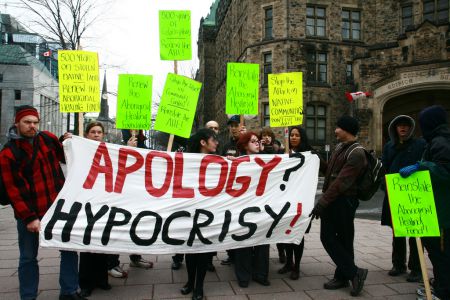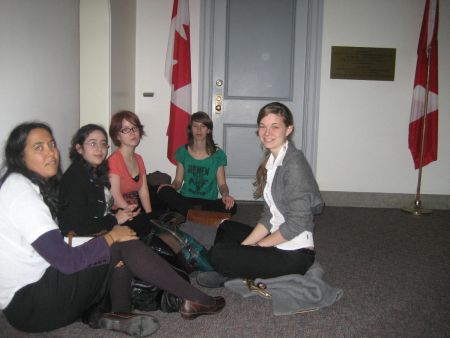“Residential school survivors and their descendents respond more positively to traditionally-based healing services than conventional methods” says Tarry Hewitt, Project Coordinator at Aboriginal Survivors for Healers on Prince Edward Island.
But it is precisely these services that are at risk with recent federal budget cuts to the Aboriginal Healing Foundation (AHF), which funded over 130 programs for survivors of residential schools across the country.
Coming just one year after the Canadian government's apology to survivors of the residential school system, these cuts came as a great surprise to many of those who were involved in AHF-funded programs. Funded programs included community and grassroots projects like suicide prevention programs, youth groups, traditional healing services, men's groups and women's shelters. Seven AHF-funded programs existed in Atlantic Canada. Many of these services, including Aboriginal Survivors for Healing on Prince Edward Island, may be forced to close their doors as a result of these cuts.
“The residential school system was in operation for decades, and the effects are not going to be addressed in ten or fifteen years”, says Hewitt. The legacy of residential schools includes the splitting of families, physical and sexual abuse and cultural genocide, and the effects of the schools continue to plague indigenous communities. The last residential school in Canada closed in 1996.
Although the AHF funding will be reallocated to survivor's programs provided by Health Canada, advocates of the AHF insist that Health Canada cannot provide the kind of community-driven and traditional healing services that made the AHF so successful.
Campaigns have been initiated across the country to protest the cuts, including a sit-in by six non-native women in Minister of Indian Affairs Chuck Strahl's office on March 29. One day later an emergency debate took place in Parliament to discuss the cuts, but so far the funding has not been restored.
Maya Rolbin-Ghanie, a member of Missing Justice in Montreal and a participant in the sit in, says the cuts to the AHF are indicative of the Canadian government's broader attitude to indigenous people
“It is important to draw the links between the Aboriginal Healing Foundation, missing and murdered native women, poverty on native reserves and the countless land struggles that native communities engage in”, says Ghanie “We need to take note of our government's policies, and hold them accountable”.
Both Rolbin-Ghanie and Hewitt encourage concerned community members to take action by contacting MP Chuch Strahl's office to oppose the cuts.
Listen to an interview with Rolbin-Ghanie and Hewitt on CKDU.




